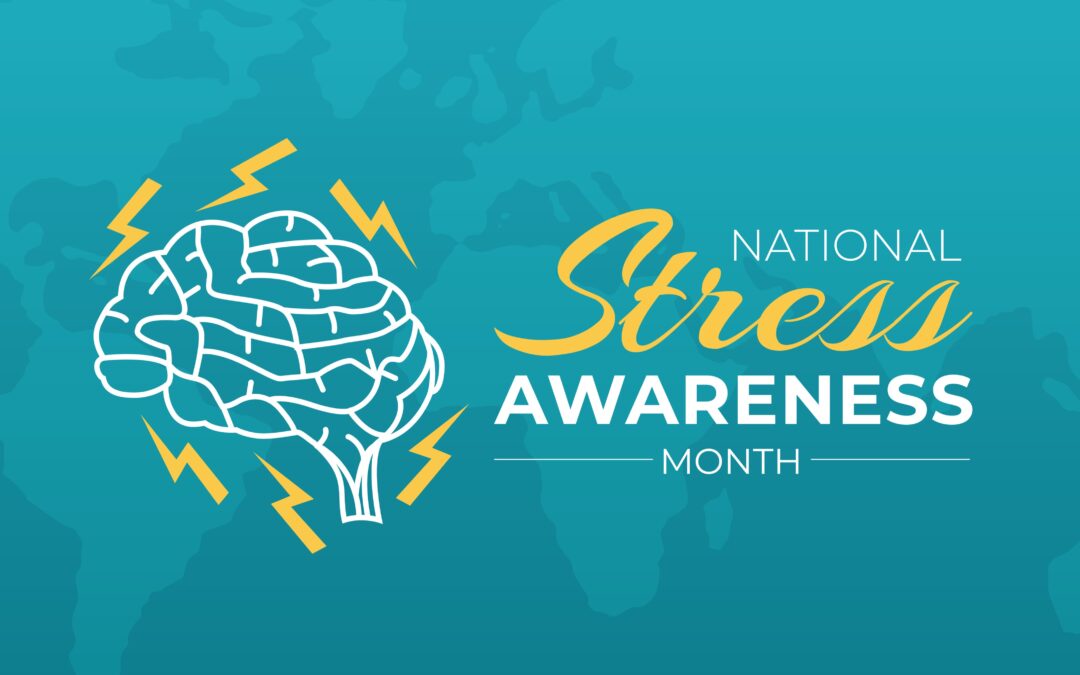April is Stress Awareness Month, a time dedicated to raising awareness about the causes and effects of stress and promoting healthy coping mechanisms. Stress is an inevitable part of life, but when left unchecked, it can have detrimental effects on mental, emotional, and physical well-being. One coping mechanism that individuals may turn to in response to stress is substance use, leading to addiction and a cycle of dependence. In this blog post, we’ll explore the connection between stress and addiction, shedding light on the underlying factors that contribute to substance abuse and the importance of addressing stress in addiction recovery.
Understanding Stress and its Impact: Stress is the body’s natural response to challenging or threatening situations, triggering a cascade of physiological and psychological reactions designed to help individuals cope with perceived threats. While acute stress can be beneficial in certain situations, chronic stress can have detrimental effects on overall health and well-being.
- Physiological Response: When faced with stress, the body releases hormones such as adrenaline and cortisol, triggering the “fight or flight” response. This physiological reaction prepares the body to respond to perceived threats by increasing heart rate, blood pressure, and respiration, and redirecting energy towards vital functions.
- Psychological Effects: Chronic stress can take a toll on mental and emotional health, leading to symptoms such as anxiety, depression, irritability, and mood swings. Prolonged exposure to stress can also impair cognitive function, memory, and decision-making abilities, making it difficult to cope with daily challenges.
- Behavioral Coping Mechanisms: In an attempt to alleviate stress and manage overwhelming emotions, individuals may turn to unhealthy coping mechanisms, such as substance use, to numb painful feelings or escape from reality. While these behaviors may provide temporary relief, they can ultimately exacerbate stress and lead to addiction.
The Connection Between Stress and Addiction: The relationship between stress and addiction is complex and multifaceted, with stress serving as both a trigger for substance use and a consequence of addiction.
- Stress as a Trigger for Substance Use: Stressful life events, trauma, and chronic stressors can trigger the onset of substance use as individuals seek relief from overwhelming emotions or difficult circumstances. Alcohol and drugs may provide temporary relief from stress, anxiety, or depression, leading to repeated use and the development of addiction.
- Self-Medication and Coping Mechanisms: Individuals struggling with stress may turn to alcohol or drugs as a form of self-medication to cope with emotional pain, numb difficult feelings, or alleviate symptoms of anxiety or depression. However, reliance on substances to manage stress can quickly spiral into addiction, as tolerance builds and dependence develops.
- Neurobiological Changes: Chronic stress and substance use can both lead to changes in brain chemistry and neurobiological pathways, altering the brain’s reward system and reinforcing addictive behaviors. Over time, these changes can contribute to the development of addiction and the cycle of dependence.
- Co-Occurring Disorders: Stress and addiction often co-occur with other mental health disorders, such as anxiety, depression, post-traumatic stress disorder (PTSD), and other trauma-related conditions. These co-occurring disorders can exacerbate stress levels and complicate the recovery process, making it essential to address underlying mental health issues in addiction treatment.
Addressing Stress in Addiction Recovery: In addiction recovery, addressing stress is a crucial component of achieving lasting sobriety and improving overall well-being. By developing healthy coping mechanisms and learning to manage stress effectively, individuals can reduce the risk of relapse and build a solid foundation for long-term recovery.
- Stress Management Techniques: Explore stress management techniques such as mindfulness meditation, deep breathing exercises, progressive muscle relaxation, and yoga to help calm the mind and body and promote relaxation.
- Healthy Lifestyle Habits: Prioritize self-care by adopting healthy lifestyle habits, including regular exercise, nutritious eating, adequate sleep, and time for relaxation and leisure activities. Engaging in activities that bring joy and fulfillment can help reduce stress and improve mood.
- Social Support Networks: Build a strong support network of friends, family members, peers, and professionals who can offer encouragement, guidance, and support during difficult times. Surround yourself with positive influences and seek out individuals who understand your journey and can offer empathy and understanding.
- Professional Help and Treatment: Seek professional help and support if you’re struggling to cope with stress or manage addictive behaviors. Addiction treatment programs, therapy, counseling, and support groups can provide valuable resources, tools, and strategies for addressing stress and overcoming addiction.
Conclusion: As we observe Stress Awareness Month in April, let us recognize the significant impact that stress can have on mental, emotional, and physical well-being, as well as its connection to addiction. By understanding the underlying factors that contribute to substance abuse and addressing stress effectively in addiction recovery, individuals can take proactive steps towards healing, resilience, and lasting sobriety. Together, let’s prioritize self-care, healthy coping mechanisms, and support networks to navigate life’s challenges with strength, resilience, and hope.

